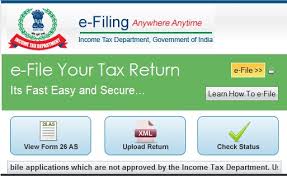
Crypto currencies appear to be living up to their cryptic reputation.
Days after the income-tax department issued about 5 lakh notices to high net-worth individuals (HNIs) who own bitcoins or any other crypto currency, investors are drafting replies that would show they have no dues to the authorities.
On its part, the income tax department may also find it difficult to figure out whether wealthy investors actually hold any bitcoins, or the income earned from these instruments. The department may also struggle to calculate the capital gains tax on bitcoins as investors have used complex investment strategies. Some also claim that they have never bought any crypto currency, or that their accounts may have been hacked a few years ago.
“The tax department is investigating the source of income and whether money invested in bitcoins or any other crypto currency is from money laundering,” a senior official in the know told ET. “Bitcoins are not illegal and income tax is applicable, but if the source of money invested in bitcoins is illegitimate, then the enforcement directorate (ED) or any other investigating agency will take over the investigations,” a senior official in the know told ET.
For the moment, those receiving notices are busy with their response to the authorities. A 37-year-old technology executive from Banguluru, also a bitcoin investor, has heard from the taxmen. The executive says that he never gained any income from bitcoins as he bought and sold portions of the crypto currency over the years on different platforms, including over-the-counter.
Another Surat-based trader, who too has received an income-tax notice, plans to tell the revenue authorities that his account was hacked into and that he doesn’t own any bitcoin anymore.
The tax department can levy prevention of money laundering act (PMLA) on investors and the investigations can be taken over by ED.
For verifying some of the facts regarding bitcoins and crypto currencies, the tax department is seeking to rope in technology experts to assess whether the respondents’ claims of hacking are tenable.
Experts point out that it is near-impossible to hack in to a bitcoin wallet.
“It is virtually impossible to hack and steal one’s bitcoins through the wallet as these are encrypted data. Also, the reason why many criminals are using bitcoins or other crypto currencies is that it is nearly impossible to know all the transactions that were carried out,” said Brijesh Singh, Special Inspector General of Police (Cyber), in Maharashtra Police. “If investigators get hold of one such currency—say a bitcoin—then all the past data of transactions are already there, and cannot be wiped out,”
The tax depart department issued notices to about 5 lakh HNIs who hold crypto currencies. The notice lists 28 questions that include answers on sources of income, and whether such income was declared in the income-tax returns.
Industry trackers say that a large portion of those who have received tax notices are diamond, textile and commodity traders. “The suspicion is that these individuals used to carry out trades in crypto currency after the clampdown on the cash economy. Some of these individuals don’t even own bitcoins in their own name,” said a tax official.
“Many bitcoin investors are not technology executives but grey market operators who settle their trading in different products in crypto currency. This is almost impossible to track as bitcoins are traded on a daily basis and across platforms,” said Tushar Ajinkya, Partner, DSK Legal.
Many experts point out that the tax department will also find it difficult to figure out how many bitcoins an individual owns due to the complex methodologies undertaken by many HNIs to buy, sell, and invest in bitcoins.
“Identifying the evasion of taxes in crypto is altogether a new case, for which they (tax authorities) need to be technically equipped,” said a top executive from a Southeast Asia-based bitcoin platform.
While bitcoins are still not illegal in India, income tax and ED are scrutinising all transactions.
ET had on December 16 written that the indirect tax department is also investigating whether sales tax and VAT or GST are applicable on bitcoin exchanges. However, figuring out the timelines of transactions could be tricky for the investigating agencies.
To trade in bitcoins, people necessarily need not come to the exchange. They can buy from a third party outside the exchange and can sell outside the exchange. Currently, the authorities have no means to identify either the trades or the people.
Cyber security experts say that some of the bitcoin investors could be those who are actually looking to evade taxes.
The IT department, as of now, can only identify the people who have bought or sold in the exchanges. That too, it will be a daunting task for them to ascertain the exact gains since the bitcoin bought on the exchange could have been mixed by replacing it with a different bitcoin from the OTC (Over-the-counter) market in a short period. It is known as a sort of “mixture services” in market parlance.
“The holder can hold on to the replaced bitcoin for a much longer time without the IT department knowing about the same,” said the executive mentioned above.
Similarly, it is difficult to identify the purchase price for someone who bought from the OTC market and sold on the exchange platform.
Mixture Services is also used to hide identities. Tax authorities will struggle to know how much one earned between exchange buying and OTC selling.
Source: The Economic Times





